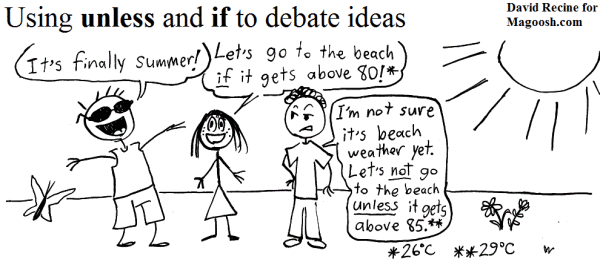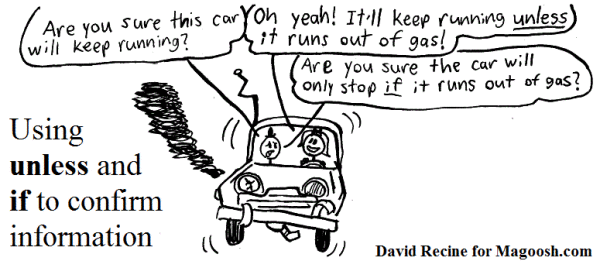In my last post on this subject, I talked about the difference in meaning between unless and if. As I mentioned before, “unless” usually is a substitute for “except if” or “if not.” When “unless” is used as a substitute in an “if” sentence, the two sentences have the same meaning. “I will not call her if she calls me first” is the same as “I will call her except if she calls me first,” and “I will call her unless she calls me first,” for example.
There are other ways that unless and if can be used together, instead of being substitutes for each other. For instance, in a conversation, one person could suggest a course of action if something else happens. Another person could disagree, saying not to do that thing unless a certain condition is met. This can be seen in the following comic.

Unless and if can also be used to ask for confirmation of a fact. When one person makes an if statement, another person might rephrase the statement as an unless question. (Or vice-versa.) You can see that here:

If and unless can also be used together by a single speaker or writer, to restate and reinforce an important idea. You are likely to come across this use in a textbook or factual article. Unless and if as factual reinforcers might look something like this:

Photo by Valentyn Volkov
Notice above that not can be moved from its usual place in the if statement, and put in the same sentence with unless. Grammar is unless and if together gives you flexibility of use and some flexibility of grammar.






Leave a Reply